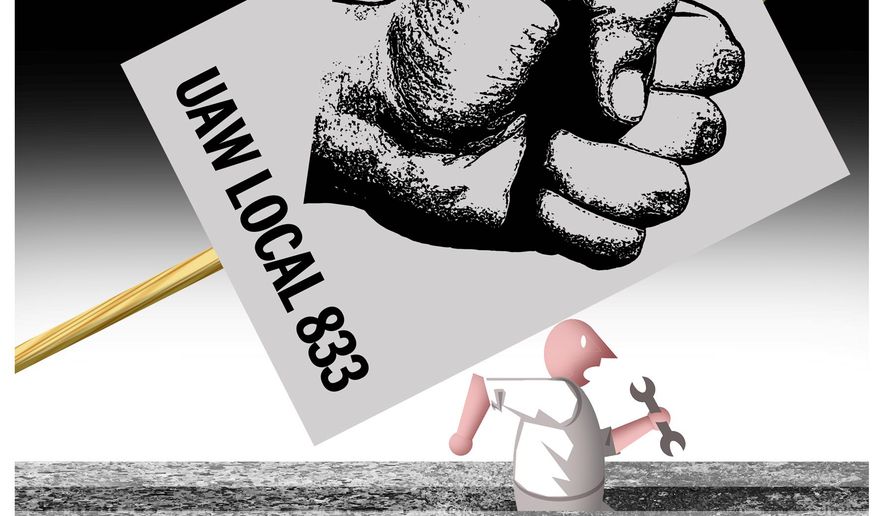OPINION:
As states scramble to implement a framework for mail-in election voting, it’s not difficult to imagine how 80 million ballots floating through postal networks could diminish the accuracy of the final tally. At worst, the process invites fraud.
If Joe Biden takes the White House, this won’t be the last we hear about the risk to “free and fair elections.” Mr. Biden has promised to fulfill the long-standing union agenda to wipe out secret ballots when seeking certification to represent employees.
Under current law, unions have access to a secret ballot workaround known as a “card check” election. Union organizers collect employee signatures face-to-face on “authorization” cards. (Imagine someone coming to your front door and pressuring you to publicly sign a card as your binding vote for the suggested presidential candidate.)
If a majority of workers sign these cards, they are presented to the employer as proof the employees voted to form a union.
The case law is filled with charges of union officials intimidating workers into signing on the dotted line. And the courts have recognized the unreliability of these signatures to express free choice — something unions themselves have also privately acknowledged. In a private vote, it’s not difficult to imagine many “YES” signatures shifting to “NO” votes. And in countless elections, that has been the history of these “card check” schemes.
The law provides a relief valve for employees pressured to sign. If company management doubts the cards represent a true majority, they can call for a government-supervised, secret ballot election to confirm results.
Under a Biden administration, this well-grounded democratic process could be upended as a payoff to all of his union supporters.
In 2009, then-Vice President Biden helped lead the charge in favor of the Employee Free Choice Act (EFCA) — an Orwellian name if there ever was one. If adopted, the EFCA would have allowed unions to bypass those pesky secret ballot elections for workers in favor of a card check process with no appeal option. Once certified, if the union didn’t come to an agreement on wages and benefits for their new dues paying members, they could have the government intervene to help set those terms.
This was a bridge too far for some of Mr. Biden’s Democratic colleagues. Uber-liberal senator and Democratic presidential nominee George McGovern penned an op-ed in The Wall Street Journal labeling the idea as a “disturbing and undemocratic overreach not in the interest of either management or labor.” Addressing his Democratic friends, McGovern went on to lecture, “[w]e cannot be a party that strips working Americans of the right to a secret-ballot election.”
While the proposal has gained traction in Congress, America’s workers dodged a bullet when a 60-vote Senate threshold resulted in its 2009 failure.
But that could all change under a Biden administration. If elected, some in the Democratic camp have threatened to change voting procedures, which would give a Chuck Schumer-controlled Senate a clear path to adopting card check legislation (as part of a broader package called the PRO Act). The law would have far-reaching implications, even outlawing state right-to-work laws that free employees from paying dues to a union as a condition of keeping their job.
Union approval in the United States remains high, but few Americans want one in their workplace. Today, only 6.2% of private sector employees are paying dues to a union. Congress has no business tilting the playing field so that unions can override Americans’ preferences to have a job with no strings attached.
• Rick Berman is president of Berman and Co. in Washington, D.C.




Please read our comment policy before commenting.